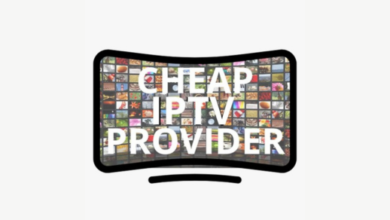
DAOs: Transforming Governance and Collaboration in a Decentralized World”
By Dr. Pooyan Ghamari, Swiss Economist
As technology reshapes our world, Decentralized Autonomous Organizations (DAOs) have emerged as a revolutionary approach to governance, powered by blockchain technology. DAOs represent an entirely new way for individuals to organize, collaborate, and make collective decisions—without central leadership or traditional hierarchies. Through the use of smart contracts, DAOs enable decentralized decision-making processes that are secure, transparent, and highly efficient. This article delves into how DAOs function, their impact on modern governance, and their potential to reshape industries worldwide.
What is a DAO? Redefining Organizational Structure
A DAO, or Decentralized Autonomous Organization, is an entity governed by smart contracts on a blockchain. Unlike conventional organizations that rely on executives or boards of directors, DAOs allow all stakeholders to participate directly in decision-making processes. Here, power lies not in titles but in token ownership, granting voting rights to members and ensuring that each decision is reached collectively and transparently.
Smart contracts underpin the operations of DAOs, acting as automated scripts that execute commands when certain conditions are met. This automation reduces the need for administrative oversight, cuts operational costs, and enhances the organization’s flexibility. Every action within a DAO, from voting to fund allocation, is recorded on the blockchain, ensuring transparency and accessibility to all members.
Key Benefits of DAOs: Transparency, Participation, and Efficiency
DAOs offer a range of benefits over traditional organizations, transforming how decisions are made and how members interact within a shared structure. Key advantages include:
- Transparency: The blockchain-based nature of DAOs allows every transaction and decision to be visible to all members. This level of openness encourages accountability, as each decision is traceable and immutable, reducing the risk of fraud or corruption.
- Decentralized Control: By design, DAOs eliminate the need for central authority figures. Decisions are made collectively, ensuring that each member’s voice is considered, leading to fairer, more democratic outcomes.
- Reduced Operational Costs: DAOs replace many traditional administrative functions with automated smart contracts, cutting down overhead costs and reducing the time needed for governance processes.
- Inclusivity and Accessibility: DAOs encourage a participatory approach where all stakeholders, regardless of location or background, have equal rights to influence the organization’s direction. This inclusivity empowers individuals and creates a more engaged community.
Real-World Applications of DAOs Across Industries
DAOs have found applications across multiple industries, demonstrating their versatility and potential to innovate traditional business models. Here are some prominent examples:
- Finance and Decentralized Finance (DeFi): DAOs are widely adopted in decentralized finance (DeFi), where they serve as governance frameworks for financial services. For instance, Compound and Aave allow users to propose and vote on updates to the platform, setting interest rates, collateral requirements, and more. This structure allows for flexible adaptation based on community consensus.
- Social and Environmental Causes: DAOs have been used to organize around specific causes, such as environmental initiatives or social justice movements. These DAOs provide transparent ways to fund projects and make decisions democratically, ensuring that resources align with the community’s shared values.
- Creative and Artistic Communities: Artists and creators are leveraging DAOs to manage royalties, raise funds for projects, and distribute profits. By giving artists control over their own work, DAOs bypass traditional intermediaries, allowing creators to engage directly with their audience.
Challenges and Limitations of DAOs
While DAOs offer exciting opportunities, they also face challenges that could impact their growth and adoption. Key limitations include:
- Regulatory Uncertainty: DAOs operate in a legal gray area, as most jurisdictions lack clear regulatory frameworks for decentralized organizations. This lack of clarity presents risks, especially for DAOs engaging in financial transactions or raising funds.
- Security and Smart Contract Vulnerabilities: The immutability of blockchain technology is both a strength and a potential weakness. Once deployed, smart contracts cannot be easily changed, meaning coding errors or security flaws could be costly. To address these risks, DAOs must invest heavily in security audits and testing.
- Complexity in Consensus Building: While DAOs enable equal participation, reaching consensus can be challenging in large groups, especially when decisions require expert input or technical understanding. Without efficient voting structures, decision-making processes can become slow or contentious.
The Future of DAOs: A New Paradigm in Governance
Looking ahead, DAOs have the potential to reshape not only corporate governance but also broader societal structures. As blockchain technology evolves, DAOs may find applications in government, enabling citizens to participate directly in policy decisions and budget allocations. Already, forward-thinking governments and institutions are exploring how DAOs can improve transparency and efficiency in public administration.
While challenges remain, the DAO model is a powerful example of what can happen when technology, transparency, and community involvement come together. In the coming years, DAOs could redefine how individuals collaborate, govern, and create value collectively. As more industries experiment with decentralized structures, DAOs may prove to be the foundation for a future where organizations are governed by their communities, for the benefit of all.
For more insights and smart investment opportunities, visit the original article here from this link. You can also find out about the latest news on A Land new section. Also for the latest trends in gold investment and to begin your journey into purchasing precious metals, visit EE Gold official website.



